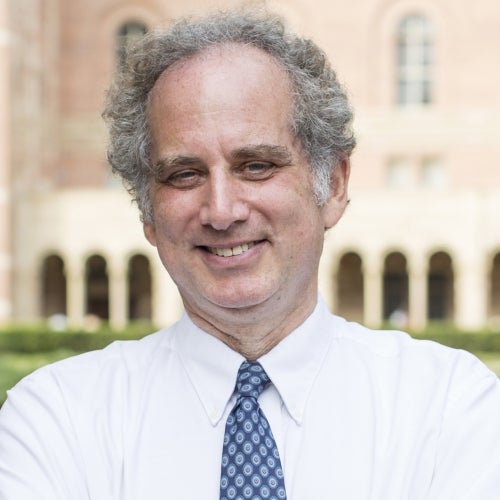Student Perspectives: Biostatistics
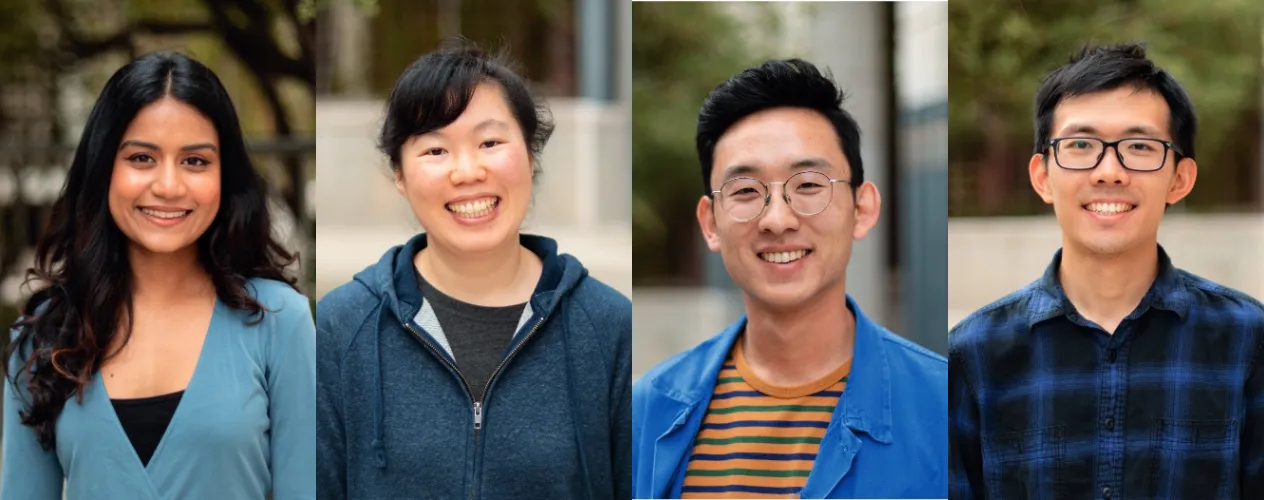
Informing Policy to Limit Harmful Exposures
Valentina Arputhasamy (MS ’21)
PhD Student, Biostatistics
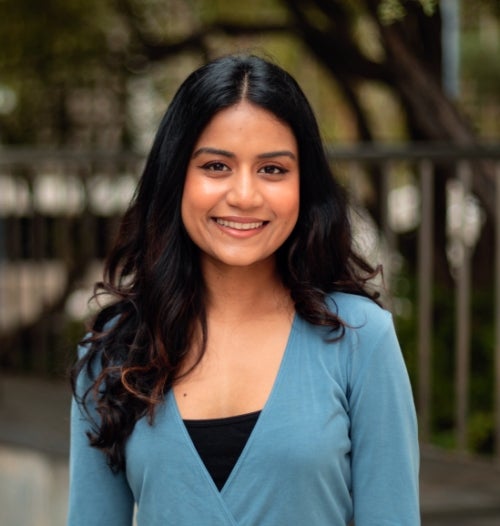
After completing my undergraduate education, I interned as a financial analyst at a biotechnology company. I was excited to use my skills to contribute to advancing health through disease research and drug development, but my role was mostly restricted to making forecasts, generating reports, and analyzing financial results. While I was certainly making an impact, it felt removed and unsatisfying. This compelled me to seek a position where I could dedicate my time to helping the people around me and contributing to the betterment of society. I became motivated to work toward a career in public health, which led to my pursuit of an MS and PhD in Biostatistics at UCLA Fielding.
My dissertation is focused on developing and implementing statistical models to analyze spatially and temporally oriented exposure data from the Aliso Canyon gas leak disaster of 2015-16 in Los Angeles County. The developments envisioned in my dissertation will enable environmental health researchers and epidemiologists to analyze exposure data from the gas leak to ascertain how public health in surrounding communities has been impacted and what measures and policies can be put in place to mitigate the adverse effects. I’m hopeful that the insights from my research will transform current policies and protect other potentially impacted communities in similarly disastrous situations.
Detecting Glaucoma Progression
Erica Su
MS ’20, PhD ’23, Biostatistics
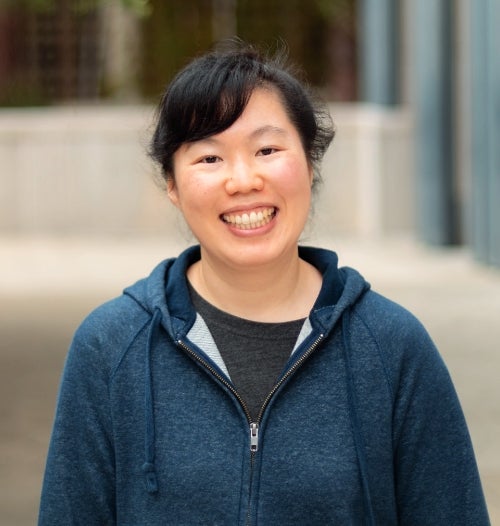
The nature of academic research requires us to pose a question and look for an answer in a methodological fashion. Oftentimes in our search for the answer, we find ourselves wondering what the experimental data actually tells us. Years of working as a research assistant sparked my interest in learning how to more effectively analyze data and develop a methodology to facilitate this process. I chose to pursue a doctorate in FSPH’s Department of Biostatistics to better bridge the gap between real-world health problems and statistical methodology.
Glaucoma is the second-leading cause of blindness worldwide, posing a significant public health burden. There is a pressing need for novel methods to diagnose and monitor glaucoma progression to prevent further loss of vision. Collaborating with Dr. Kouros Nouri-Mahdavi from the UCLA Stein Eye Institute, I have constructed and implemented statistical models to optimize the detection of glaucoma progression in patients with moderate to advanced glaucoma. In my dissertation work, I have demonstrated improved estimation of rates of progression compared with current methods, providing meaningful contributions toward prevention of vision loss due to glaucoma. In the future, I hope to apply the skills I have developed to diverse problems in public health and medicine.
Advancing LGBTQ+ Healthcare
Andrew Chuang
MS Student, Biostatistics
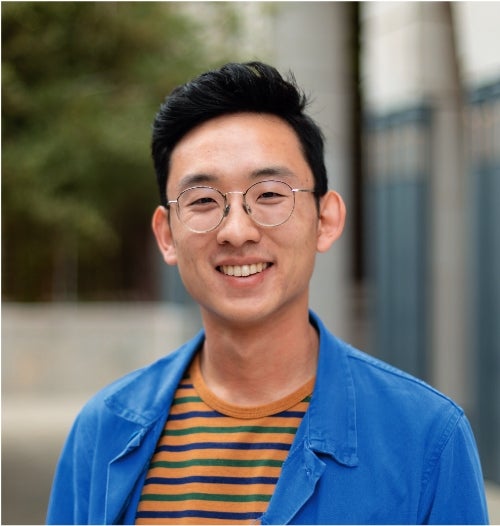
My interest in disparities in health outcomes affecting the LGBTQ+ community stems from my personal experiences with the healthcare system. In my own life, I have encountered discrimination from healthcare providers when I have sought care. Unfortunately, my experiences are not unique: Multiple studies have found that LGBTQ+ people are more likely to report negative encounters with their healthcare providers than non-LGBTQ+ people.
Under the supervision of Dr. Tom Belin and other faculty and students in the UCLA Fielding School of Public Health’s Department of Biostatistics, I am developing a pilot survey incorporating new methodology to characterize gender identity and sexual orientation. Currently, many national government surveys use questionnaire items that conflate the two concepts, or incorporate binary options for sex that exclude transgender and intersex people. The goal of our group is to develop and pilot test novel questionnaire items that better reflect nuances in gender identity and sexual orientation relevant to public health outcomes. I am grateful for the opportunity to be involved with research at UCLA Fielding, and I hope to continue working on statistical methods that can identify health outcome disparities in the future.
Mining Electronic Health Data
Shanpeng Li
MS ’19, PhD ’23, Biostatistics
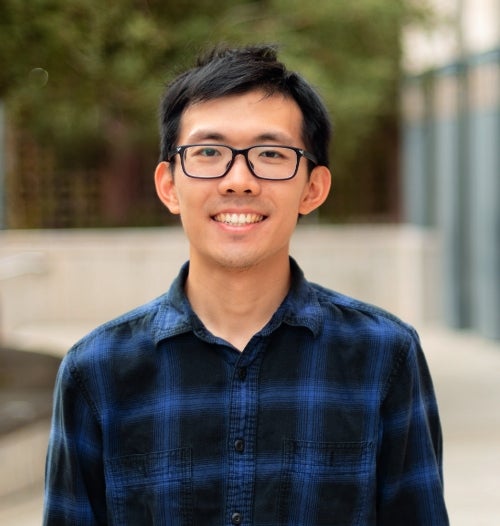
The availability of massive electronic health records (EHR) data sets provides the opportunity to conduct health studies in real-world settings. Recent statistical advances that allow researchers to model longitudinal biomarkers (measurable characteristics in the body that can track normal or disease processes) in combination with health outcomes are, in some cases, not equipped to handle massive amounts of EHR data. In other cases, these models incorrectly interpret the complex pattern of longitudinal biomarkers, creating barriers to using this research for clinical decision-making.
My PhD thesis brings an efficiency to this joint modeling such that analyzing an EHR data set with millions of patients takes no longer than minutes. When I applied the methods I developed to a diabetes study in the U.K., the results suggested that unexpected variations in longitudinally measured systolic blood pressure can be highly predictive of cardiovascular disease outcomes and death.
In my future research, I intend to continue to bridge gaps between computational efficiency and methodological development, and hope to extend my work to predicting health outcomes by simultaneously studying multiple biomarkers, as well as combining data from multiple institutions in pursuit of more accurate risk-factor assessments and personalized medicine approaches with both clinical and public health applications.
